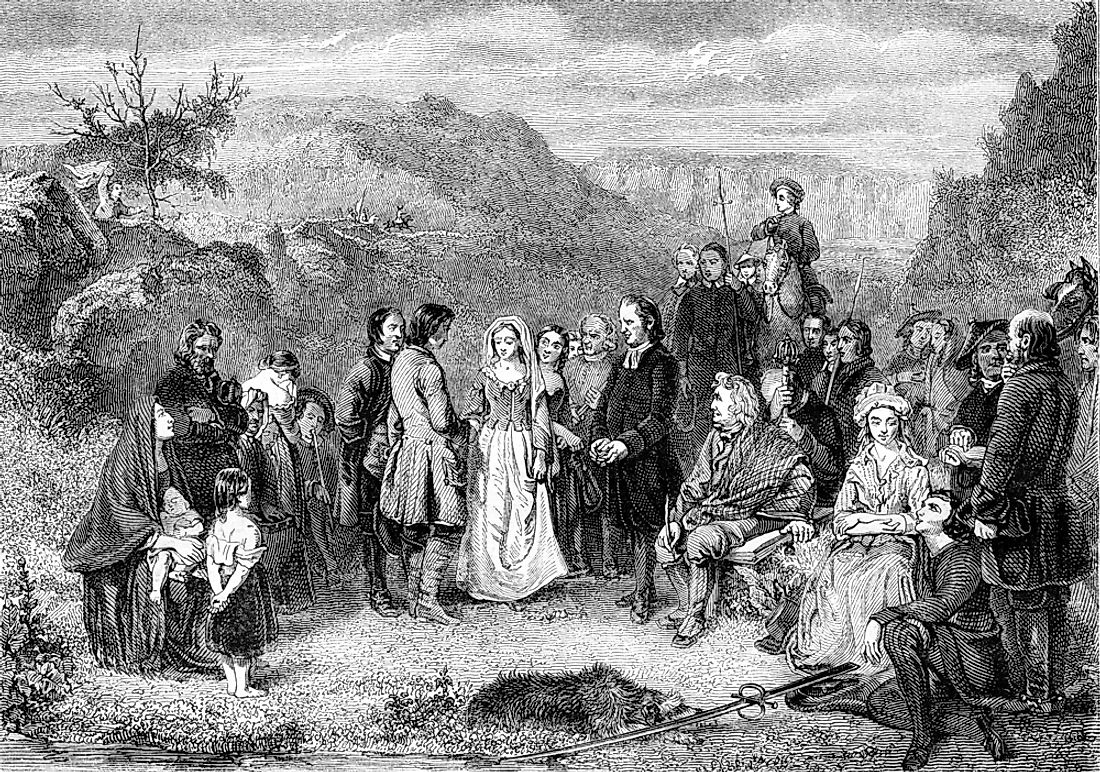Who Were the Puritans?

Puritans were reformed Protestants in England who wanted to cleanse the Church of England from what they termed as traces of “Catholic Practices.” Puritans were active in the 16th and 17th centuries in England but also spread to some parts of the modern day North America. What started as an activism within the church saw the leaders exiled only to return in 1558 when Elizabeth I ascended to the throne. Limited by the English law, Puritan beliefs found their way to the Netherlands, Wales, Ireland, and North America. They took a different stance on the clerical dress, and episcopal system among other beliefs that closely related with Catholicism. Through strategy and luck, Puritans came to power after the First English Civil War. Eventually, most left the Church of England. However, the church incorporated some of the Puritans’ beliefs. Puritan movement slowly faded off in the 18th century. Many people considered the word Puritan a derogatory that depicted some Protestants as extremists. However, Puritan is used today to mean “against pleasure.”
Puritan History
Puritanism changed its belief system regularly over the 16th and 17th centuries. Elizabethan Puritanism opposed Elizabethan religious beliefs towards the end of the 16th century. Jacobean Puritanism existed from early 1600. Due to hostility towards Puritans, most of them migrated and differed politically among themselves and with the Church of England. In the mid-1600s, some of Puritanism’s beliefs got support from the Church of Scotland and other minor sects. The Church of England restored its constitution to the form it was before Puritans ascended (First English Civil War) to political positions, therefore, sidelining the Puritans further leading to more than 2,400 Puritan clergies leaving the church by 1662. Most of them were called “Dissenters.” Many of the dissenters found it hard to minister because the government restricted their activities.
Puritan Beliefs
Puritans believed in seeking the Holy Spirit’s intervention in interpreting Bible teachings with an emphasis on moral and ecclesiastical purity. They also believed that man exists to do the will of God and the name of Jesus to be exalted in everything. However, some Puritans were divided on whether to support the existing bishops’ hierarchy or to adopt the Presbyterian model of church leadership. Puritans believed that demons existed and were very active in possessing people and therefore their pastors performed exorcisms to the possessed and to those who practiced witchcraft. Puritans also believed in Millennialism and that there would be a golden time on earth where Jesus Christ will rule for a thousand years.
Social Consequences
Puritanism had different effects on society. Education was promoted to the masses so that they could read and interpret the Bible for themselves and not depend on the clergy. Puritans also banned musical instruments during their church services for their own dogmatic and applied reasons. Puritans insisted that marriage was for procreation, love, and salvation, and husbands doubled up as spiritual heads of their homes while women were to be submissive under the authority. To them, marriage was between the spouses and God. Most Puritans separated children from their mothers at adolescence so that the children could form a good relationship with God. They believed in redeeming children through obedience and religious teachings. Girls were taught separately from boys. Boy’s training prepared them for leadership roles while girls were trained on domestic and religious functions only. Puritans also viewed the relationship between a master and a servant as to that of a parent and son. Some Puritans disapproved of Christmas celebrations and secular entertainment on moral grounds.
Influence of the Puritans
Puritans formed a religious and political movement at a time when religion and the state were intertwined. The movement which was created on the need to get rid of Catholic-like practices in the Church of England went international through migrations of the clergies that felt oppressed by the state. Eventually, they formed a belief system that had an impact on the education and social welfare of the members.











